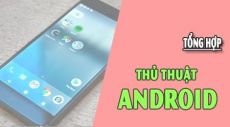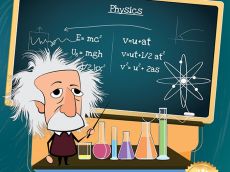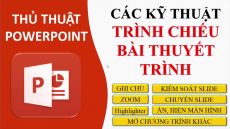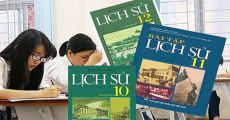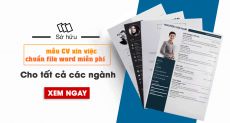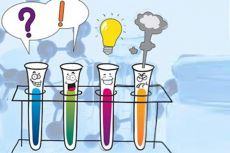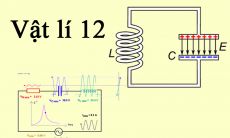Đề thi giữa HK2 môn Tiếng Anh 10 năm 2021
Trường THPT Hàn Thuyên
-
Mark the letter A, B, C, or D to indicate the word that differs from the other three in position the of the primary stress in each of the following questions
Câu 1:
Indicate the word that differs from the other three in position the of the primary stress: digital, personal, excellent, electric.
A. digital
B. personal
C. excellent
D. electric
-
Câu 2:
Indicate the word that differs from the other three in position the of the primary stress: simillar, symbolic, effective, eternal.
A. simillar
B. symbolic
C. effective
D. eternal
-
Mark the letter A, B, C, or D to indicate the correct answer to each of the following questions
Câu 3:
Personal ____ devices are useful for learning.
A. electric
B. electrical
C. electronic
D. electronical
-
Câu 4:
They’re excellent learning ____. You can store information, take notes, write essays and do calculations.
A. equipments
B. tools
C. gadgets
D. techniques
-
Câu 5:
In English class yesterday, we had a discussion ____ different cultures.
A. around
B. about
C. for
D. from
-
Câu 6:
Mrs Dawson said that we were ____ our lesson in the library next Monday.
A. having
B. making
C. reading
D. going
-
Câu 7:
I really don’t ____ the point of taking the exam when you are not ready for it.
A. take
B. have
C. mind
D. see
-
Câu 8:
If the examiner can’t ____ sense of your writing, you’ll get a low mark.
A. take
B. bring
C. make
D. understand
-
Câu 9:
I would prefer to go to university and do a ____ in International Studies, rather than start work.
A. certificate
B. result
C. degree
D. qualification
-
Câu 10:
My dad wants me to go university, but I’m in ____ minds about it.
A. my
B. two
C. some
D. different
-
Câu 11:
Most computers have enough ____ to store a vast amount of information.
A. database
B. document
C. memory
D. word processor
-
Câu 12:
You can’t get into the Internet unless your computer has a(an) ____.
A. access
B. terminal
C. web page
D. modem
-
Câu 13:
“Who's that over there?" - "Oh, it's our new teacher, ____ just started work today."
A. that
B. who he
C. which he
D. who
-
Câu 14:
"Which CD did you get Marcus in the end?" – "I got him the one ____ said he really wanted to hear."
A. that
B. who he
C. whose
D. which he
-
Câu 15:
“Who did you send a Valentine's card to?" - "I'm not telling you, but it was someone ____ name begins with “B”.”
A. which
B. who her
C. whose
D. whose her
-
Câu 16:
"Have you seen Jason Green's latest film?" – "Is that the one in ____ joins the FBI?”
A. which he
B. that he
C. whom he
D. which
-
Câu 17:
"Why do you like Tania so much?” – “Well, she's one of the few people to ____ I can really talk."
A. which
B. whom
C. that
D. who
-
Câu 18:
"Why don't we go to Lionel's for dinner tonight?” - “Is that the new restaurant ____ has just opened on the other side of town?"
A. which
B. where
C. that it
D. which it
-
Câu 19:
"Could you lend me some money?" – "I'd like you to give me one good reason ______ I should."
A. that
B. which
C. why
D. who
-
Câu 20:
“What do you want to do this summer?” – “I think we should go somewhere ____ has plenty of sun and sand."
A. who
B. where
C. when
D. that
-
Câu 21:
Smartphones, laptops and tablets are the modern devices ____ have changed the way we think.
A. what
B. Ø
C. whose
D. that
-
Câu 22:
Students use smartphones to record their phone calls, ___ they later share with the class.
A. Ø
B. that
C. which
D. whose
-
Mark the letter A, B, C, or D to indicate the correct response to each of the following exchanges
Câu 23:
“____ ” _ “It means go very quickly.”
A. How can you explain "rush”?
B. How do you spell “rush”?
C. What does "rush” mean?
D. What is the equivalent of “rush”?
-
Câu 24:
“____” – “For” answers the question "How long” and “Since” answers the question “When".
A. What are the meanings of “for” and “since”?
B. What's the difference between “for” and “since”?
C. How to see the difference between “for” and “since”?
D. How similar are “for” and “since”?
-
Câu 25:
“So, Sven, you've been learning English for ten years. That's a long time.”-“____”
A. Yes, so what? I want to keep learning until I can hold a conversation like a native speaker.
B. It's none of your business! I want to keep learning until I can hold a conversation like a native speaker.
C. I suppose it is, but I want to keep learning until I can hold a conversation like a native speaker.
D. Well, look at yourself first. I want to keep learning until I can hold a conversation like a native speaker.
-
Read the following passage and mark the letter A, B, C, or D to indicate the correct answer to each of the questions
WHAT IS YOUR LEARNING STYLE?
If you find yourself learn better by making notes during the lecture, or when the teacher uses a new word, you want to see it written immediately, then you are very likely to be a more visual learner. You prefer to see the written words. You learn by reading and writing. Visual learners often think in pictures. If you find a particular task or text difficult, look for sources that will suit your learning style, e.g. sources with illustrations, charts, tables, or videos.
If you prefer recording the lecture and listening again to taking notes, or you memorize something by repeating it aloud instead of writing it out several times, you are probably a more auditory learner. You prefer to learn by listening and speaking. Auditory learners often learn best from lectures, discussions, by reading aloud, and by listening to audio material.
However, it is probably that you, like most people, learn through a mixture of styles. Sometimes you may prefer to learn by reading, at other time by listening. Ask yourself which is the best style for the particular task you are doing.
Câu 26:
Which of the following is probably NOT preferred by a visual learner?
A. reading aloud
B. sources with illustrations
C. sources with videos
D. making notes
-
Câu 27:
What does the word "it" in paragraph 1 refer to?
A. the lecture
B. the new word
C. the note
D. the written word
-
Câu 28:
The word “visual” in paragraph 1 is closest in meaning to ____.
A. picturesque
B. written
C. illustrative
D. seeable
-
Câu 29:
Which of the following statement is TRUE?
A. Auditory learners hate taking notes.
B. Auditory learners prefer listening to speaking.
C. Most people are auditory learners.
D. When learning something by heart, an auditory learner prefers reading it out loud.
-
Câu 30:
The word "auditory” in paragraph 2 can be best replaced by ____.
A. discussive
B. noisy
C. audible
D. recordable





